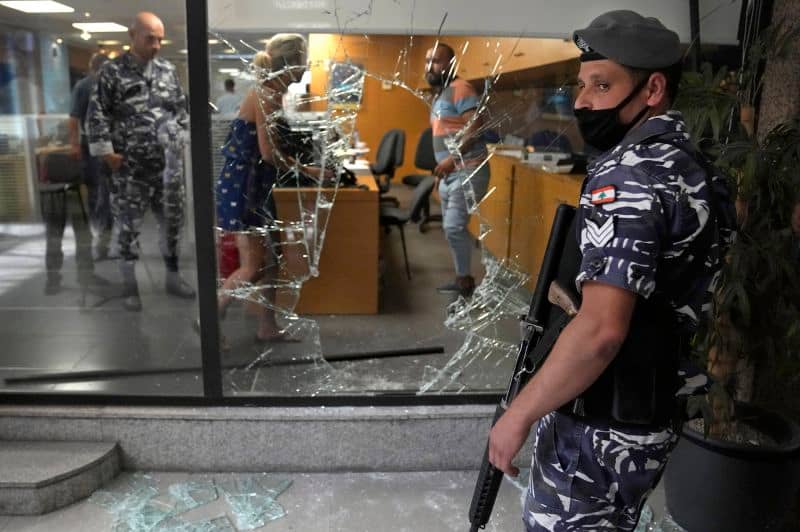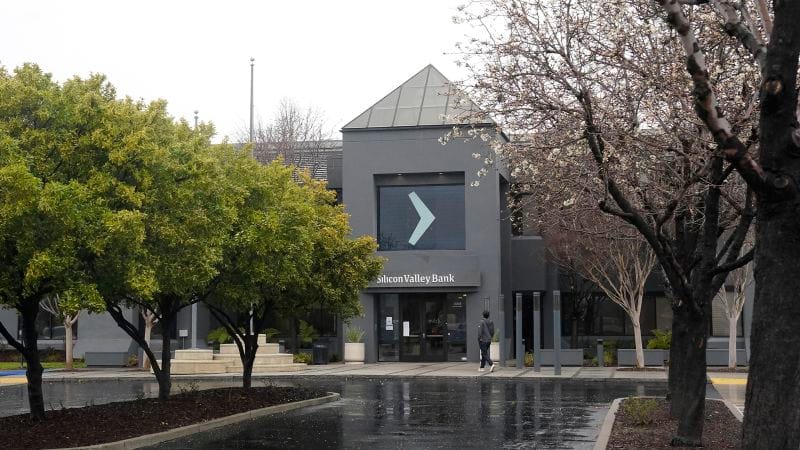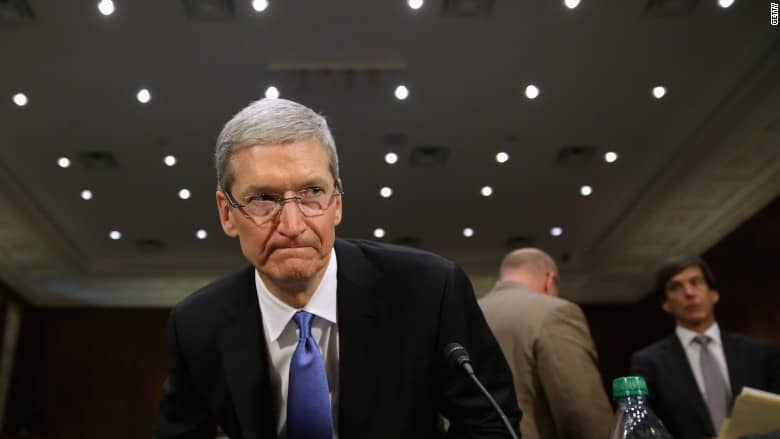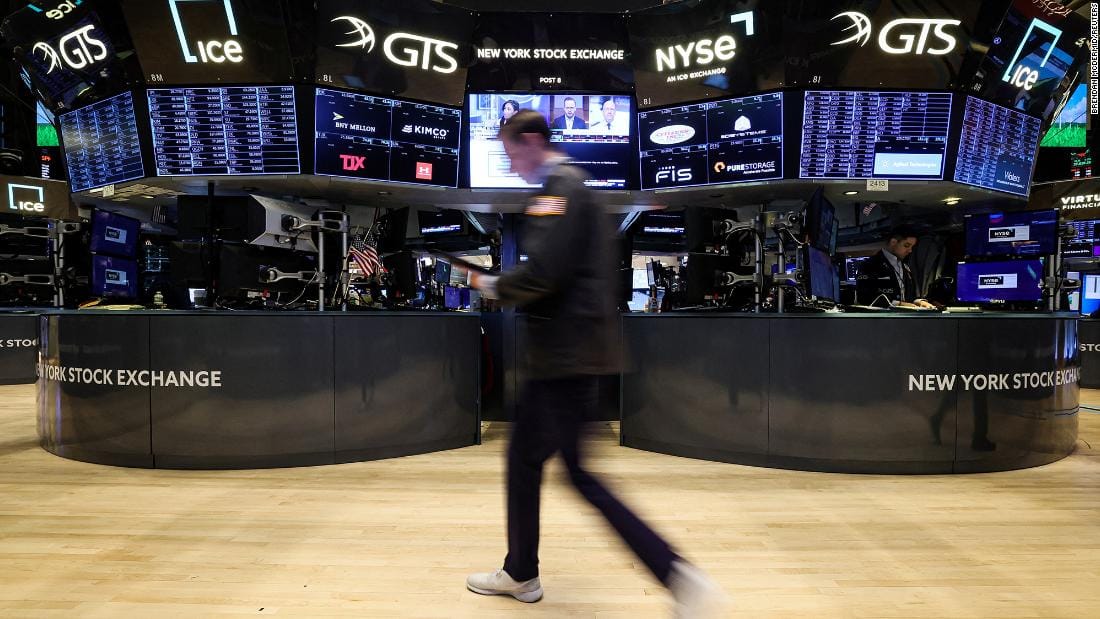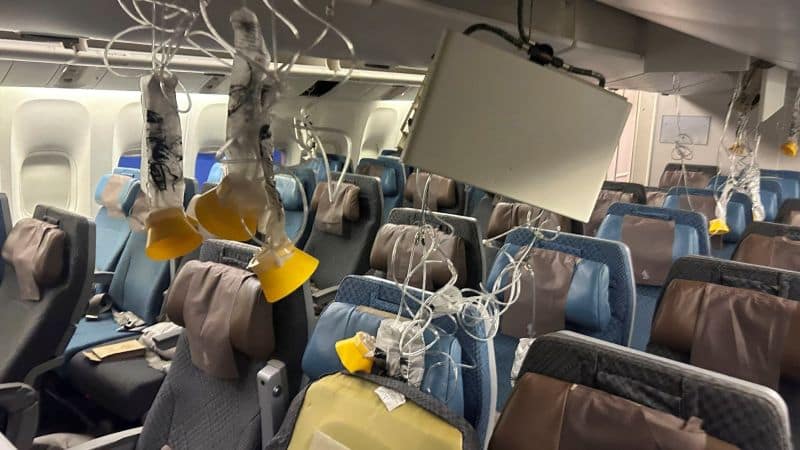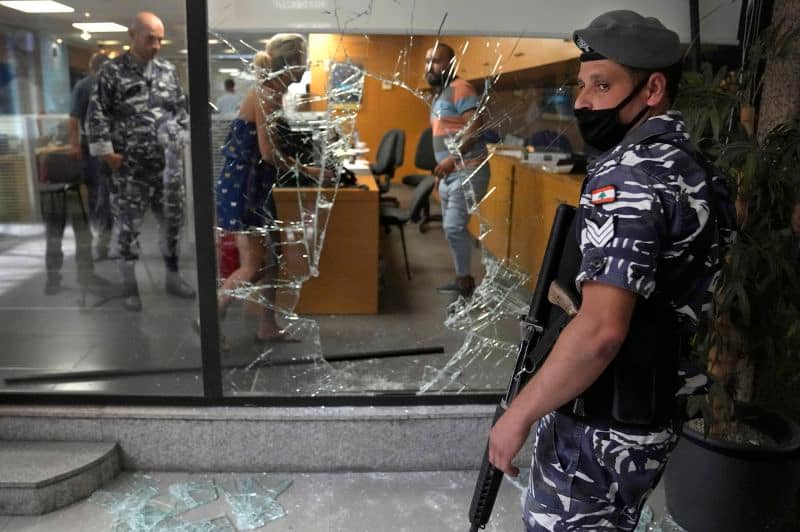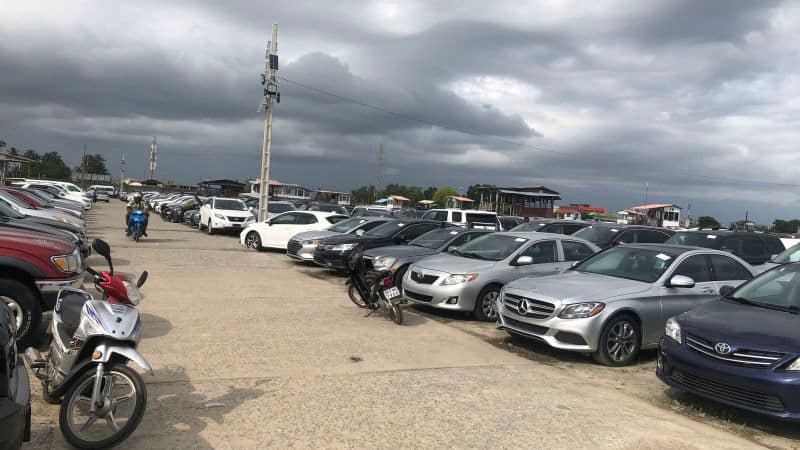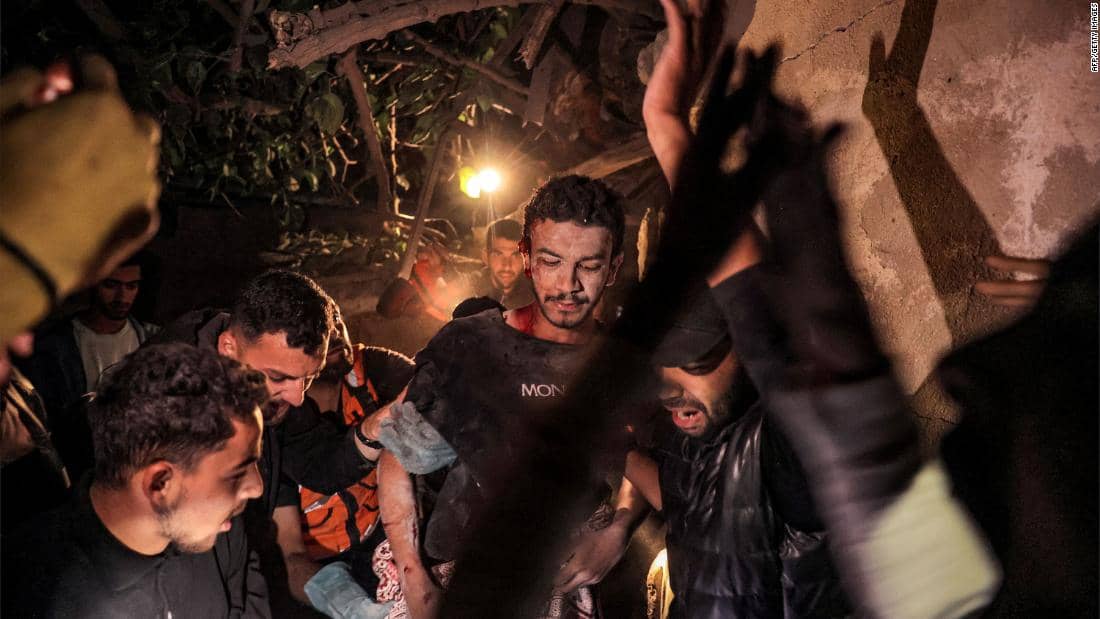Depositors held up at least five separate banks around Lebanon on Friday in an attempt to retrieve savings frozen in the banking system, a Lebanese army official told CNN. In one of
CNN
—
When customers at Silicon Valley Bank rushed to withdraw billions of dollars last month, venture capitalist Arlan Hamilton stepped in to help some of the founders of color who panicked about losing access to payroll funds.
As a Black woman with nearly 10 years of business experience, Hamilton knew the options for those startup founders were limited.
SVB had a reputation for servicing people from underrepresented communities like hers. Its failure has reignited concerns from industry experts about lending discrimination in the banking industry and the resulting disparities in capital for people of color.
Hamilton, the 43-year-old founder and managing partner of Backstage Capital, said that when it comes to entrepreneurs of color, “we’re already in the smaller house. We already have the rickety door and the thinner walls. And so, when a tornado comes by, we’re going to get hit harder.”
Established in 1983, the midsize California tech lender was America’s 16th largest bank at the end of 2022 before it collapsed on March 10. SVB provided banking services to nearly half of all venture-backed technology and life-sciences companies in the United States.
Hamilton, industry experts and other investors told CNN the bank was committed to fostering a community of minority entrepreneurs and provided them with both social and financial capital.

SVB regularly sponsored conferences and networking events for minority entrepreneurs, said Hamilton, and it was well known for funding the annual State of Black Venture Report spearheaded by BLK VC, a nonprofit organization that connects and empowers Black investors.
“When other banks were saying no, SVB would say yes,” said Joynicole Martinez, a 25-year entrepreneur and chief advancement and innovation officer for Rising Tide Capital, a nonprofit organization founded in 2004 to connect entrepreneurs with investors and mentors.
Martinez is also an official member of the Forbes Coaches Council, an invitation-only organization for business and career coaches. She said SVB was an invaluable resource for entrepreneurs of color and offered their clients discounted tech tools and research funding.
Many women and people of color say they are turned away
Minority business owners have long faced challenges accessing capital due to discriminatory lending practices, experts say. Data from the Small Business Credit Survey, a collaboration of all 12 Federal Reserve banks, shows disparities on denial rates for bank and nonbank loans.
In 2021, about 16% of Black-led companies acquired the total amount of business financing they sought from banks, compared to 35% of White-owned companies, the survey shows.
“We know there’s historic, systemic, and just blatant racism that’s inherent in lending and banking. We have to start there and not tip-toe around it,” Martinez told CNN.
Asya Bradley is an immigrant founder of multiple tech companies like Kinley, a financial services business aiming to help Black Americans build generational wealth. Following SVB’s collapse, Bradley said she joined a WhatsApp group of more than 1,000 immigrant business founders. Members of the group quickly mobilized to support one another, she said.
Immigrant founders often don’t have Social Security numbers nor permanent addresses in the United States, Bradley said, and it was crucial to brainstorm different ways to find funding in a system that doesn’t recognize them.
“The community was really special because a lot of these folks then were sharing different things that they had done to achieve success in terms of getting accounts in different places. They also were able to share different regional banks that have stood up and been like, ‘Hey, if you have accounts at SVB, we can help you guys,’” Bradley said.
Many women, people of color and immigrants opt for community or regional banks like SVB, Bradley says, because they are often rejected from the “top four banks” — JPMorgan Chase, Bank of America, Wells Fargo and Citibank.
In her case, Bradley said her gender might have been an issue when she could only open a business account at one of the “top four banks” when her brother co-signed for her.
“The top four don’t want our business. The top four are rejecting us consistently. The top four do not give us the service that we deserve. And that’s why we’ve gone to community banks and regional banks such as SVB,” Bradley said.
None of the top four banks provided a comment to CNN. The Financial Services Forum, an organization representing the eight largest financial institutions in the United States has said the banks have committed millions of dollars since 2020 to address economic and racial inequality.
Last week, JPMorgan Chase CEO Jamie Dimon told CNN’s Poppy Harlow that his bank has 30% of its branches in lower-income neighborhoods as part of a $30 billion commitment to Black and Brown communities across the country.
Wells Fargo specifically pointed to its 2022 Diversity, Equity, and Inclusion report, which discusses the bank’s recent initiatives to reach underserved communities.
The bank partnered last year with the Black Economic Alliance to initiate the Black Entrepreneur Fund — a $50 million seed, startup, and early-stage capital fund for businesses founded or led by Black and African American entrepreneurs. And since May 2021, Wells Fargo has invested in 13 Minority Depository Institutions, fulfilling its $50 million pledge to support Black-owned banks.
Black-owned banks work to close the lending gap and foster economic empowerment in these traditionally excluded communities, but their numbers have been dwindling over the years, and they have far fewer assets at their disposal than the top banks.
OneUnited Bank, the largest Black-owned bank in the United States, manages a little over $650 million in assets. By comparison, JPMorgan Chase manages $3.7 trillion in assets.
Because of these disparities, entrepreneurs also seek funding from venture capitalists. In the early 2010s, Hamilton intended to start her own tech company — but as she searched for investors, she saw that White men control nearly all venture capital dollars. That experience led her to establish Backstage Capital, a venture capital fund that invests in new companies led by underrepresented founders.
“I said, ‘Well, instead of trying to raise money for one company, let me try to raise for a venture fund that will invest in underrepresented — and now we call them underestimated — founders who are women, people of color, and LGBTQ specifically,’ because I am all three,” Hamilton told CNN.
Since then, Backstage Capital has amassed a portfolio of nearly 150 different companies and has made over 120 diversity investments, according to data from Crunchbase.
But Bradley, who is also an ‘angel investor’ of minority-owned businesses, said she remains “really hopeful” that community banks, regional banks and fintechs “will all stand up and say, ‘Hey, we are not going to let the good work of SVB go to waste.’”
Don't Miss
Apple CEO Tim Cook wants the tech industry to take action against “fake news” stories that are polluting the web.
Stocks slid Friday after a slate of earnings beats from big banks fueled concerns that the Federal Reserve will raise
CNN — At least 11 people, including four children, were killed after a building collapsed in Brazil’s northeastern state of

Stocks slid Friday after a slate of earnings beats from big banks fueled concerns that the Federal Reserve will raise interest rates at its next two meetings.
Still, the major indices gained for the week. The Dow rose 400 points, or 1.2%. The S&P 500 gained 0.8% and the Nasdaq Composite advanced 0.3%.
JPMorgan Chase on Friday reported first-quarter profit and revenue that crushed expectations, boosted by the Fed’s interest rate hiking campaign. Citigroup, Wells Fargo and PNC Financial also reported strong results.
CEO Jamie Dimon warned investors in the company’s post-earnings conference call that they should prepare for interest rates to be higher for longer than expected.
Wall Street seems to have taken note. Analysts increased their bets on a quarter-point rate hike at the Fed’s meeting in May and another in June.
Federal Reserve Governor Christopher Waller said Friday that the central bank needs to continue tightening monetary policy, further weighing down markets.
Austan Goolsbee, president of the Federal Reserve Bank of Chicago, said that it’s “definitely” possible the United States enters a mild recession after the tumult in banking last month.
Meanwhile, retail sales data declined more than expected, suggesting that Americans’ spending power and the US economy are weakening.
Consumer sentiment held fairly steady in April, even as concerns about a recession linger, according to the University of Michigan’s latest monthly survey.
“There was too much news to digest this morning, but the key takeaway is that the Fed has room to do more harm,” Edward Moya, senior market analyst at OANDA, said in a note.
The Dow slipped 144 points, or 0.4%.
The S&P 500 tumbled 0.2%.
The Nasdaq Composite sank 0.4%.
As stocks settle after the trading day, levels might still change slightly.
Don't Miss
The aviation tracking site FlightRadar24 says, based on its data, that the turbulence on Singapore Airlines flight SQ321 occurred over
CNN — When customers at Silicon Valley Bank rushed to withdraw billions of dollars last month, venture capitalist Arlan Hamilton
US national security adviser Jake Sullivan confirmed Sunday that the US will allow European countries to start training Ukrainian fighter

Depositors held up at least five separate banks around Lebanon on Friday in an attempt to retrieve savings frozen in the banking system, a Lebanese army official told CNN.
In one of the incidents an armed man entered a bank in the south Lebanese city of Ghazieh and poured gasoline on the floor of the building, threatening to burn the branch if he could not access his money, state news agency NNA reported.
He was able to retrieve $19,200 from the bank and handed it to someone who was waiting for him outside the bank, before handing himself in to authorities, NNA said.
In another incident under investigation, a man entered a branch of BLOM bank in Beirut’s Tariq al-Jdideh neighborhood, also trying to access his savings, the army official said.
The man was allegedly armed but the situation was “under control.. and no one was harmed,” a man, who claimed to be an eyewitness to the incident and was interviewed by local TV channel Al Jadeed said.
“It seems something was planned for this day,” the army official said. An investigation is ongoing, the army official told CNN.
Following the incidents, the caretaker Interior Minister, Bassam Mawlawi, called for an emergency security meeting to “discuss further security measures that can be taken in light of the increasing bank storming incidents,” NNA said.
Lebanon’s banks have locked most depositors out of their savings since an economic crisis took hold three years ago, leaving much of the population unable to pay for basics.
The holdups came two days after similar episodes unfolded at two different Beirut banks. In one, a woman named Sally Hafiz took $20,000 from her account after storming a bank holding what she later claimed was a toy gun, state news reported.
In a separate incident last month, an armed man stormed a Beirut bank and threatened to kill hostages and himself if the bank did not allow him to withdraw money from his frozen account. Bassam Sheikh Hussein claimed he needed the funds to help pay for his father’s medical expenses. The standoff ended when the bank gave Hussein some of his savings.
Don't Miss
CNN — When customers at Silicon Valley Bank rushed to withdraw billions of dollars last month, venture capitalist Arlan Hamilton
Stocks slid Friday after a slate of earnings beats from big banks fueled concerns that the Federal Reserve will raise
The Israeli government has dropped some of the most controversial rules in a draft ordinance controlling how foreigners can enter
The Israeli government has dropped some of the most controversial rules in a draft ordinance controlling how foreigners can enter and stay in the occupied West Bank.
A draft of the rules was published in February and received harsh public backlash as well as legal challenges which forced a delay to their implementation.
One of the most controversial rules would have required foreign passport holders entering a formal relationship with a Palestinian living in the West Bank to notify Israeli authorities within 30 days of their engagement, wedding, or moving-in together. Another regulation in the draft placed quotas on the number foreign academics – lecturers and students – permitted each year.
But those regulations have been removed from the official guidance published on Sunday. The rules are currently set to take effect on October 20.
Israel says the new ordinance is meant to codify norms already in place.
The document also states that the new regulations will be part of a “two-year pilot period” after which “the situation will be evaluated and a decision will be made regarding whether to keep the procedure in force.”
An Israeli official, speaking on condition of anonymity to speak more freely, told us the reason Israel wanted foreigners to declare romantic relations with West Bank Palestinians was to simplify visitors’ visa process. The official said as an example, a student with a foreign passport who fell in love with a Palestinian could – instead of needing to renew their student visa every year – just register as a couple and receive the equivalent of a spousal visa.
But Palestinians and human rights groups said the rules were a further tamping down on the basic rights of Palestinians in the West Bank – while such rules would not have applied to Israeli settlements in the West Bank that are governed by Israeli civilian law.
Much of the international community, including the United States, considers the West Bank to be occupied territory since Israel took control of the area following the 1967 Arab-Israeli war. Israel controls all movement in and out of the territory.
The draft guidelines published in February were challenged in the Israeli Supreme Court by human rights groups and individuals.
In a statement, US Ambassador to Israel Tom Nides said the Embassy had been “aggressively engaged” with the Israeli government since the draft rules were published in February.
“I continue to have concerns with the published protocols, particularly regarding COGAT’s role in determining whether individuals invited by Palestinian academic institutions are qualified to enter the West Bank, and the potential negative impact on family unity,” Nides said. “It is important to ensure all of these regulations are developed in coordination with key stakeholders, including the Palestinian Authority.
COGAT is the Israeli agency which administers Israeli policy in the West Bank.
In a statement HaMoked, an Israeli-Palestinian legal aid organization that challenged the ruling in Israel’s Supreme Court, said the Israeli government “has removed some of the most outrageous elements” of the draft rules but that the basic problem remains: it is extremely difficult for foreign spouses of Palestinians to gain legal West Bank residency.
“[The] Israeli military takes the prerogative of micromanaging Palestinian society – including interfering with academic freedom of Palestinian universities. This procedure violates Israel’s international legal obligations and HaMoked will continue its legal challenge of it,” said HaMoked Executive Director Jessica Montell.
Israeli military admits Shireen Abu Akleh likely killed by Israeli fire, but won’t charge soldiers
The Israel Defense Forces admitted that there is a “high possibility” Palestinian-American Al Jazeera journalist Shireen Abu Akleh was shot and killed by Israeli fire while covering an Israeli military operation in Jenin in May, the IDF announced Monday.
- Background: Abu Akleh was fatally shot while covering an Israeli military operation in the West Bank in May. According to an autopsy carried out by the Palestinian Authority, she was killed by a single bullet to the back of the head. Footage obtained by CNN – corroborated by testimony from eight eyewitnesses, an audio forensic analyst and an explosive weapons expert – suggested that Abu Akleh was shot dead in a targeted attack by Israeli forces.
- Why it matters: This is the first time the IDF has admitted that Abu Akleh’s death was probably caused by Israeli fire. A senior IDF official who briefed journalists on the findings of the military’s investigation before they were released said troops didn’t know they were shooting at the press, and said that Abu Akleh’s back “probably” being turned to the soldiers was a contributing factor. In images from the scene of the shooting, Abu Akleh is wearing a protective vest that is labeled “PRESS” on both the front and back.
Iran sentences two women to death for ‘corruption on earth’
Two women have been sentenced to death in Iran on charges of “corruption on earth” and human trafficking over the last few days, Reuters cited Iran’s official IRNA news agency as saying on Monday.
- Background: “Corruption on earth” is a term Iranian authorities use to refer to a broad range of offenses, including those related to Islamic morals. “Contrary to news published online, the sentenced have deceived and trafficked young women and girls out of the country by promising them educational and work opportunities, thus leading to the suicide of several of their victims,” IRNA said.
- Why it matters: Advocates and rights group took to social media to share pictures of the two women, saying they are LGBT rights activists and are innocent. Reuters couldn’t verify the pictures. In March, Iran’s Supreme Leader Ayatollah Ali Khamenei described homosexuality as part of a “moral deprivation” widespread in Western civilization. Under Iran’s legal system, homosexual acts can be punished by the death penalty.
Erdogan accuses Greece of ‘occupying’ demilitarized islands
Turkish President Recep Tayyip Erdogan accused Greece on Saturday of occupying islands in the Aegean Sea that have a demilitarized status, and said Turkey was prepared to “do what is necessary” when the time comes, Reuters reported.
- Background: Ankara has recently accused Athens of arming the demilitarized Aegean islands, which Athens rejects, but Erdogan had not previously accused Greece of occupying them. “Your occupying the islands does not bind us. When the time, the hour, comes, we will do what is necessary,” Erdogan said. Greece reacted by saying it will not follow Turkey in its “outrageous daily slide” of statements and threats.
- Why it matters: NATO members Turkey and Greece have been at odds over issues ranging from overflights and the status of Aegean islands to maritime boundaries and hydrocarbon resources in the Mediterranean, as well as ethnically split Cyprus. Turkey has also recently been angered by what it said is harassment of its jets by Greek forces.
Abandoned for years on Istanbul’s Asian shore, the city’s famed “haunted mansion” was finally sold on Friday to Turkish lender İşbank for 449.3 million Turkish Liras ($24.7 million).
The 116-year-old historic structure stands tall and majestic in the city’s affluent neighborhood of Kadikoy. It was built in 1906 by the Prussian architect August Carl Friedrich Jasmund, according to Turkish state media, and was named ‘Ragip Pasha’ after the aide-de-camp to Ottoman Sultan Abdülhamid II.
Ragip Pasha lived in the mansion until his death in 1920, and the property has since exchanged hands several times.
The three-story building has a closed area of 2,700 square meters and sprawls over a large garden space. In desperate need of renovation, its 20th-century architecture and spectacular seaside view have made it an integral historical landmark for the Kadikoy neighborhood.
The abandoned building’s rough facade and dilapidated facilities have led locals to refer to it as ‘haunted’.
The property was sold at a public tender, where the court had initially placed the building’s price at 449.4 million liras.
İşbank bought the mansion at just 8 liras over the court’s price, according to Turkish media.

Don't Miss
CNN — When customers at Silicon Valley Bank rushed to withdraw billions of dollars last month, venture capitalist Arlan Hamilton
Cotonou, Benin CNN — Standing on the stony ground in the bustling Fifa Park car lot, Rokeeb Yaya is haggling
Israel’s military has ordered the evacuation of more neighborhoods in Rafah ahead of a potential major ground operation in the

